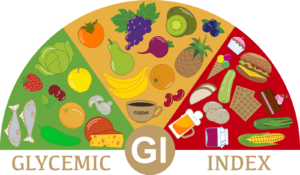Consumption of fruits and vegetables has been linked to a lower risk of cardiovascular disease (CVD). Berries are emerging as a dietary source of multiple compounds and nutrients that minimize CVD risk, such as anthocyanins, flavonols, vitamins, and fibre. Berries are rich in moisture and fibre while being low in calories. They are high in natural antioxidants like vitamins C and E, as well as micronutrients like folic acid, magnesium, selenium, alpha and beta carotene, and lutein. Benefits were observed in both stable and people with pre-existing metabolic risk factors. The underlying mechanisms for these beneficial effects are thought to include increased endothelial nitric oxide synthase activity, decreased activity of carbohydrate digestive enzymes, reduced oxidative stress, and inhibition of inflammatory gene expression and foam cell formation.
https://www.ncbi.nlm.nih.gov/pmc/articles/PMC3068482/
Basu, A., Rhone, M., & Lyons, T. J. (2010). Berries: Emerging impact on cardiovascular health. Nutrition Reviews, 68(3), 168–177. https://doi.org/10.1111/j.1753-4887.2010.00273.x




